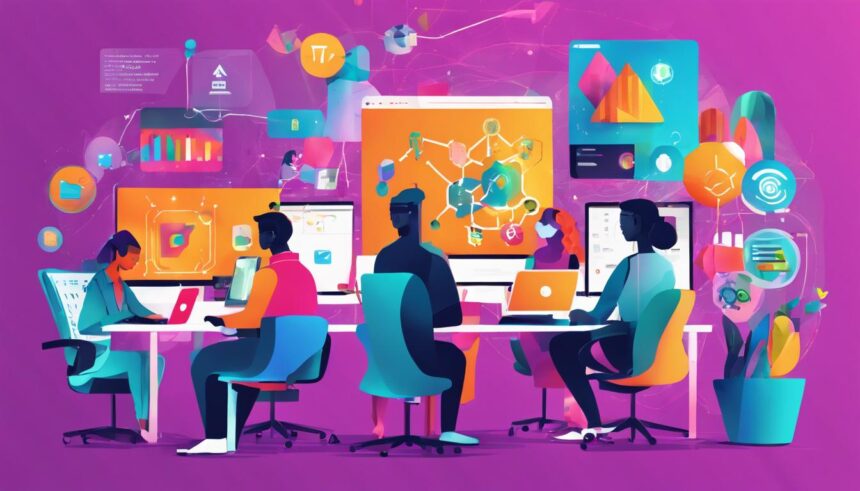A recent study by Seismic explores how enablement technologies are reshaping business operations and generational approaches to new tech in Australia, highlighting the diverse attitudes and usage across different age groups.
In a notable shift within Australian workplaces, a new report has highlighted the increasing impact of enablement technologies across different generations in the workforce, suggesting a transformative shift in how businesses operate and thrive in challenging economic climates. The Generation Enablement Report, conducted by global enablement leader Seismic, surveyed over 300 Australian business leaders to dissect the utilization of these technologies across Baby Boomers, Generation X, Millennials, and Generation Z.
Enablement technologies, tools designed to improve the efficiency and effectiveness of sales and marketing teams by providing necessary resources and insights, are garnering significant approval, with an overwhelming 85% of users citing competitive advantages for their teams. The survey underscores a broad recognition of the technology’s essential role in enhancing job satisfaction and strategic operations, especially in navigating difficult economic challenges.
One of the standout findings from the survey is the varying enthusiasm and resistance towards adopting new technologies among different generational cohorts. Generation Z, the youngest cohort, shows the highest ease of adopting new technologies with barely any resistance reported. However, their enthusiasm for emerging technologies like artificial intelligence (AI) is relatively subdued compared to older generations.
Millennials, closely following Gen Z, are more optimistic about the integration of AI into the workplace, viewing it as a supportive virtual partner and showing a proactive stance towards increasing their technology enablement investments.
In contrast, Generation X members show more caution, with the majority demonstrating some resistance to adopting new technologies. Nonetheless, this generation heavily depends on enablement analytics to guide data-driven decisions, reflecting a strategic approach to technology use.
The most resistance comes from Baby Boomers, with a significant portion struggling to integrate new technologies. Despite this challenge, a substantial number of Boomers acknowledge the benefits of enablement technologies, with 85% reporting increased job satisfaction.
Paige O’Neill, Chief Marketing Officer at Seismic, identifies enablement technologies as pivotal in addressing today’s major business challenges such as customer engagement, team scaling, tech adoption, and productivity improvements. O’Neill highlights the role of enablement in uniting and empowering a diverse, multigenerational workforce to foster an innovative and adaptive business environment.
The findings also reveal a notable discrepancy in technology use across different departments and geographical regions. While Australian respondents reported one of the lowest utilizations of enablement technology compared to counterparts in the United States, the United Kingdom, and France, the adoption is not limited to just sales and marketing but is expanding across various organisational departments.
Patricia Peral, Senior Director of GTM Enablement at Beeline, emphasized the critical role of enablement leaders in ensuring effective adoption and ongoing education about the benefits and operations of new technologies. This is crucial to maximizing the potential benefits across all generational groups within the workforce.
The Generation Enablement Report not only sheds light on the crucial role of enablement tech in contemporary business strategies but also outlines the broader shifts towards a more integrated, agile, and technologically equipped workplace environment, paving the way for a more dynamic and competitive business landscape in Australia and beyond.





